

Rod Bourke, NSW Bee Biosecurity Officer, discusses the importance of mite surveillance. Read more
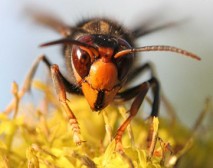
As the Bee Biosecurity Officer for Queensland, I keep my eyes peeled for bee pests and diseases when I am undertaking demonstrations or hive checks. More importantly though, I educate beekeepers throughout Queensland on the pests and diseases that they should be looking for in their own hives and how to identify them. Asian hornets […] Read more
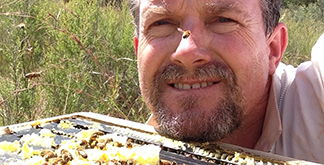
In this update, NSW Bee Biosecurity Officer (BBO) Rod Bourke provides an overview of his main activities since March 2020. It’s fair to say that I have found the last seven months to be about the weirdest time in my life, and there has been a lot of uncertainty that has made it tough for […] Read more
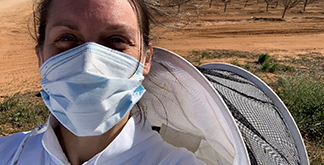
This update provides an overview Victorian BBO Ally Driessen’s main activities since mid-2020 Read more
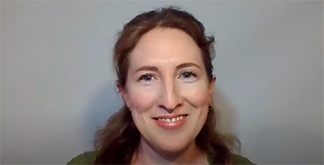
Earlier this year, Queensland Bee Biosecurity Officer Rebecca Laws presented a series of webinars covering a wide range of bee biosecurity topics like how to check your hive for pests and diseases. The webinars were recorded and are now available to watch on the Biosecurity Queensland YouTube channel and below. Ants, waxmoth and hive beetle This […] Read more
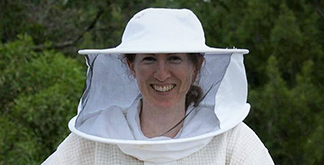
This update from the Queensland Bee Biosecurity Officer Rebecca Laws gives an overview of her main activities since early 2020. Bee Biosecurity Roadshow During February, I took to the road to deliver the Bee Biosecurity Roadshow to spread bee biosecurity messages throughout Queensland. Travelling up the coast from Brisbane to north Queensland, I visited […] Read more
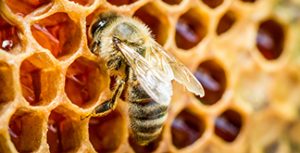
The Biosecurity for Beekeepers online course is now free for all Australian beekeepers, increasing the accessibility of training which will help protect the honey bee industry from pests and diseases. Trevor Weatherhead, Chair of the Australian Honey Bee Industry Council (AHBIC), said the course was previously only free for commercial beekeepers who had 50 or […] Read more
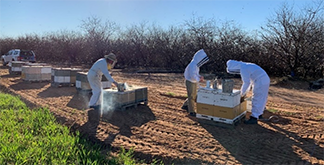
The 2020 almond pollination season is not far away. The Agriculture Victoria apiary team reminds beekeepers planning to provide pollination services that it is vital to adequately prepare hives so that they are healthy and strong to work in the orchards. Australian Honey Bee Industry Biosecurity Code of Practice (‘the Code’) Almond pollination season provides […] Read more
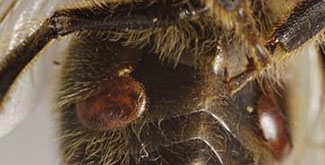
Current world events have highlighted the level of management required for preventative biosecurity and, even more so, the difficulty of tracing and eradication once an incursion breaches the border. They have also illustrated the importance of an individual’s actions. When it comes to bee biosecurity, all beekeepers need to be vigilant to support the early […] Read more
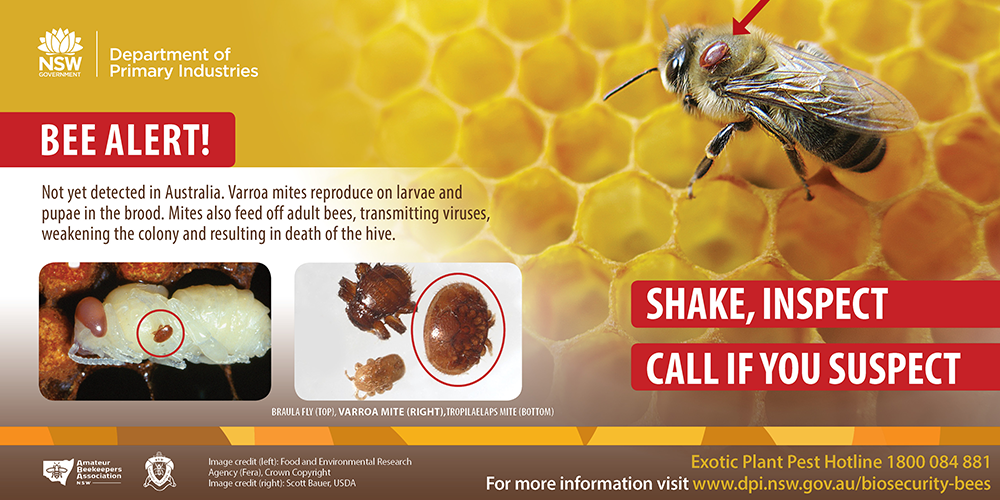
April is Sugar Shake Month, a joint initiative between NSW DPI, Amateur Beekeepers Association NSW, NSW Apiarists Association and the National Bee Biosecurity Program to promote awareness and surveillance for exotic bee mites in Australia. During April, all beekeepers are encouraged to perform a sugar shake test and submit their results to the NSW DPI. […] Read more
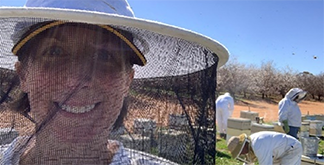
At the end of 2019 and beginning of 2020, Victorian Bee Biosecurity Officer Ally Driessen focused on bee biosecurity and disease and pest risk mitigation through: Supporting beekeepers who have notified the department about pests, diseases and bee deaths. These are mostly cases of suspected American Foulbrood (AFB) and chalkbrood. Supporting councils (through the Apiary […] Read more
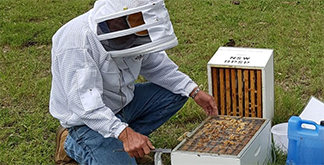
The Buzz with Rod Bourke Despite a reasonable spring, many parts of NSW are facing a tough outlook for the next 3-6 months. It is important to prepare your hives adequately now so that they can idle along with as little stress as possible. Ensure hives have a good store of honey (at least 15-20kg) […] Read more
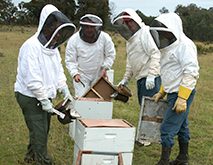
It’s that time of year again. NSW DPI is asking beekeepers to inspect their hives and work together to minimise the occurrence of American foulbrood (AFB) in NSW hives. What is AFB? AFB is a fatal and incurable disease of European honey bees caused by the bacterium Paenibacillus larvae. The bacterium kills the bee larvae […] Read more
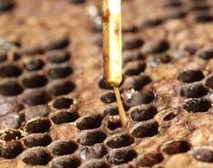
PIRSA Biosecurity SA is reminding beekeepers to be on the lookout for American foulbrood (AFB) following a detection in hives in the Mount Barker area. AFB is a notifiable bacterial disease that kills honeybee brood, resulting in the weakening and eventual death of affected hives. General Manager of Plant and Food Standards at Biosecurity SA, […] Read more

Beekeepers who plan to attend pollinations are urged to complete a four point checklist. Read more
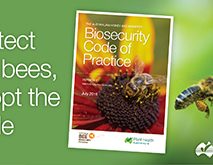
The Australian Honey Bee Industry Biosecurity Code of Practice sets requirements for beekeepers that provide a framework for implementing biosecurity best practices. The Code is part of the National Bee Biosecurity Program and was developed by Australian Honey Bee Industry Council (AHBIC) in collaboration with state and federal governments. Recently, Peter McDonald, the Chair of […] Read more
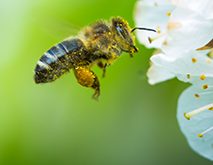
Please take the time to complete the Honey Bee Health Survey 2018. A short survey has been developed to find out how healthy Australian honey bees are, and what pests and diseases might be causing problems for beekeepers. The results from the survey will be used to decide what help beekeepers might need to keep […] Read more

NSW Department of Primary Industries (DPI) has declared American foulbrood (AFB) Awareness Month this October to help keep local bee hives healthy and productive. DPI plant biosecurity prevention and preparedness manager, Chris Anderson, urged beekeepers across the state to look for symptoms of AFB and take prompt action. “If there are signs of AFB, dark […] Read more

Beekeepers nationally, commercial and hobby, are being urged to adopt the Australian Honey Bee Industry Biosecurity Code of Practice to keep their bees healthy and to safeguard honey bee and pollination dependent industries. Honey production is worth more than $100 million annually, along with sales of beeswax, queen and packaged bees. This is dwarfed by […] Read more

Australia has one of the strongest honey bee surveillance program in the world, with 170 closely monitored beehives at 32 ports across Australia providing an early warning system for exotic bee pests and diseases. In the wake of a recent varroa mite detection in an incoming ship to the Port of Melbourne there is a […] Read more